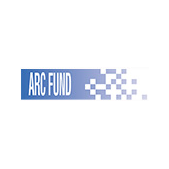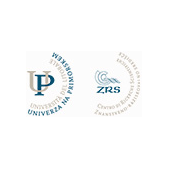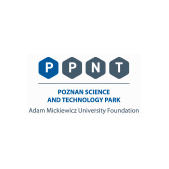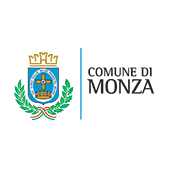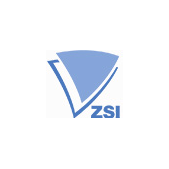COURSE OUTLINE
The CASI project aims at assessing Sustainable Innovations (SI) that respond to Societal Challenge 5 of Horizon 2020, namely ‘Climate action, environment, resource efficiency and raw materials’, in order to develop a framework supporting better management of SI initiatives. This free online course offers a comprehensive review of sustainable innovation related topics organised around 6 Modules and 12 Units.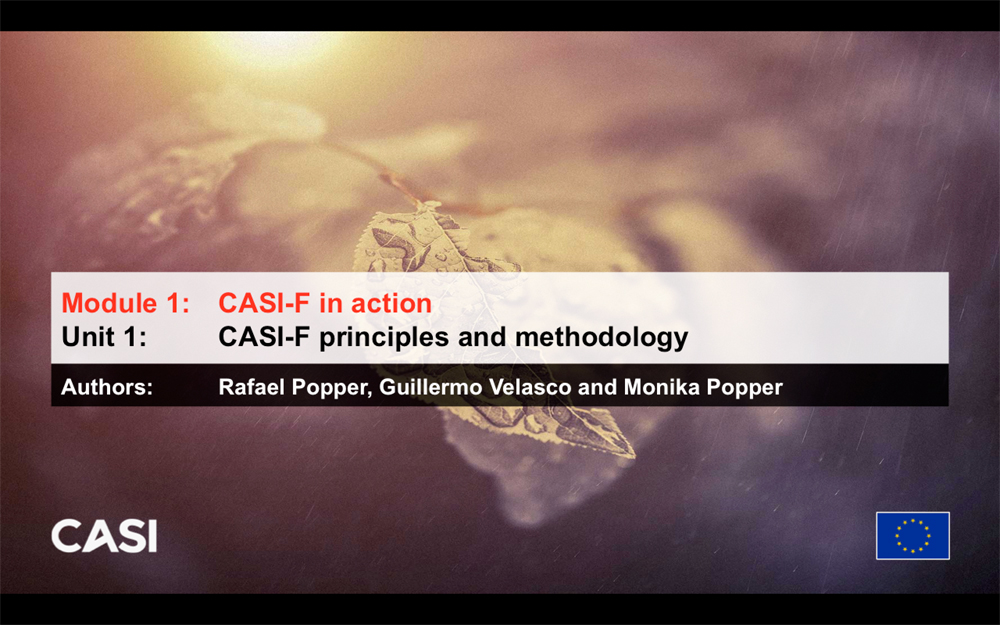
CASI-F principles and methodology
A five-step guide to future-proof action plans: Understand the why, what and how of sustainable innovation assessment and management.
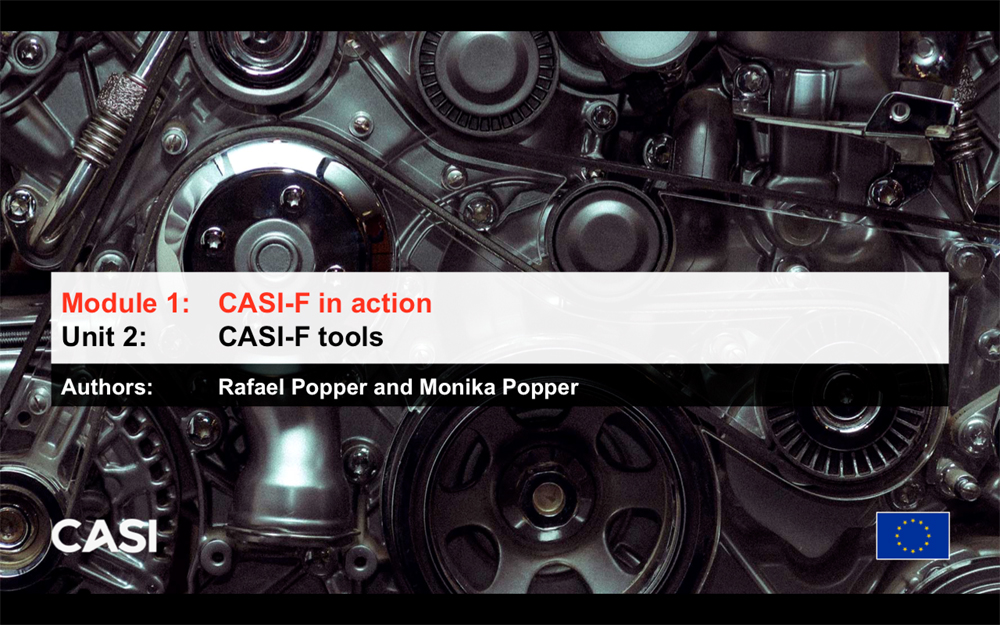
CASI-F Tools
Web-based solutions supporting open innovation practices: Use CASI-F tools and optimize your innovation potential through learning by doing.
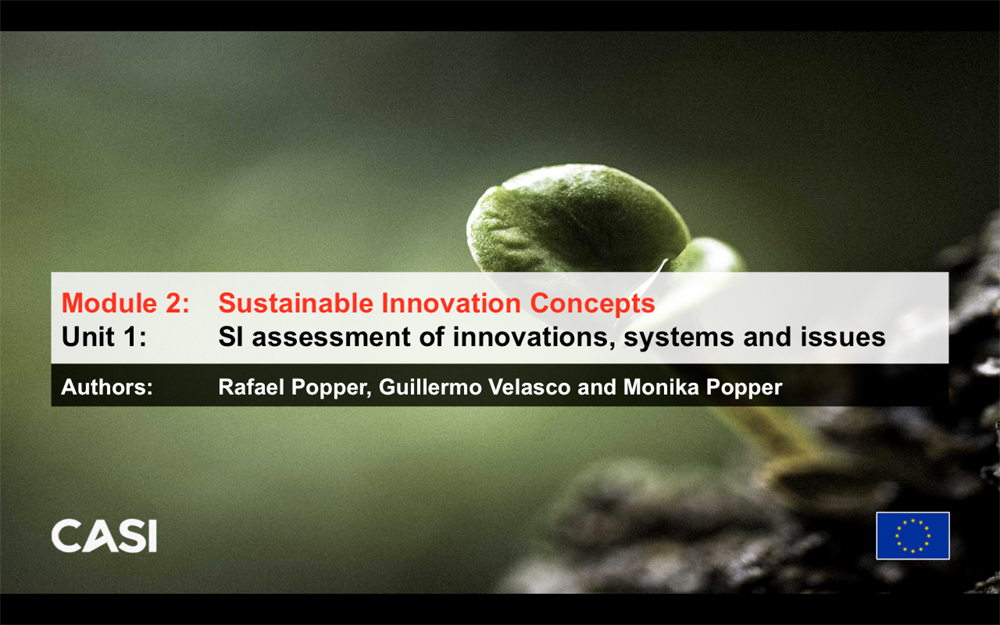
SI assessment of innovations, systems and issues
A must-have set of criteria for more holistic sustainability appraisals: Learn about 7 types of innovations and new assessment indicators.
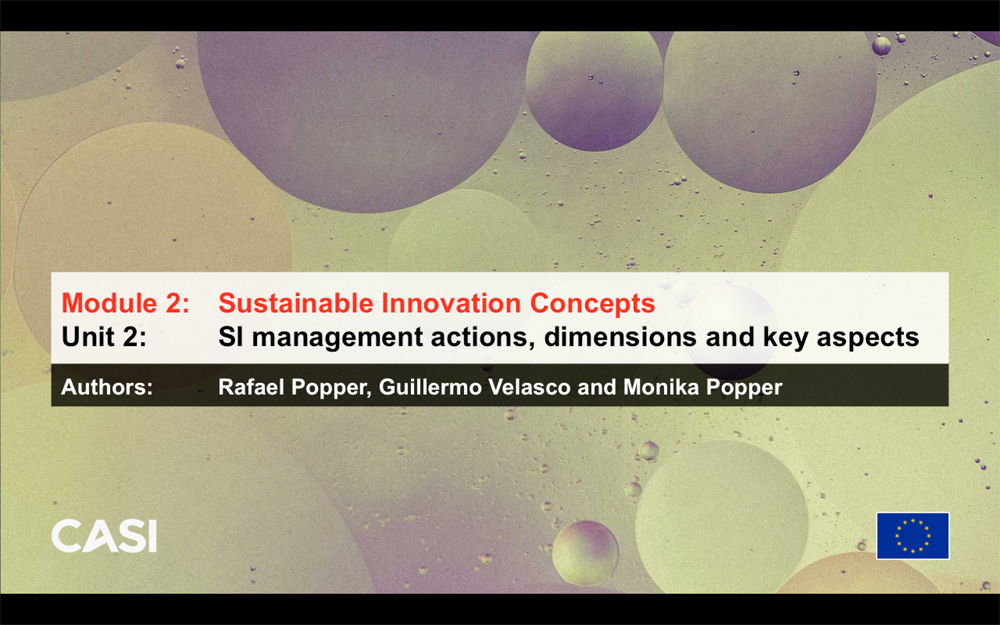
SI management actions, dimensions and key aspects
A comprehensive set of decision-support concepts: Discover different types of managerial needs and innovative ways of framing solutions.
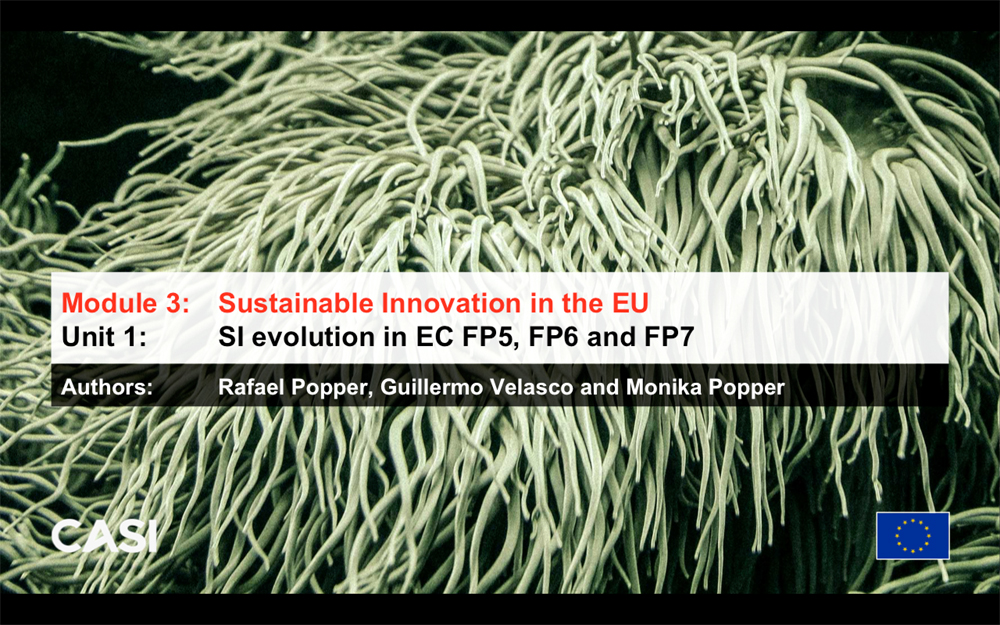
SI evolution in EC FP5, FP6 and FP7
An overview of European Commission funded sustainability-oriented efforts between 1998-2013: Compare objectives, priorities and budgets.
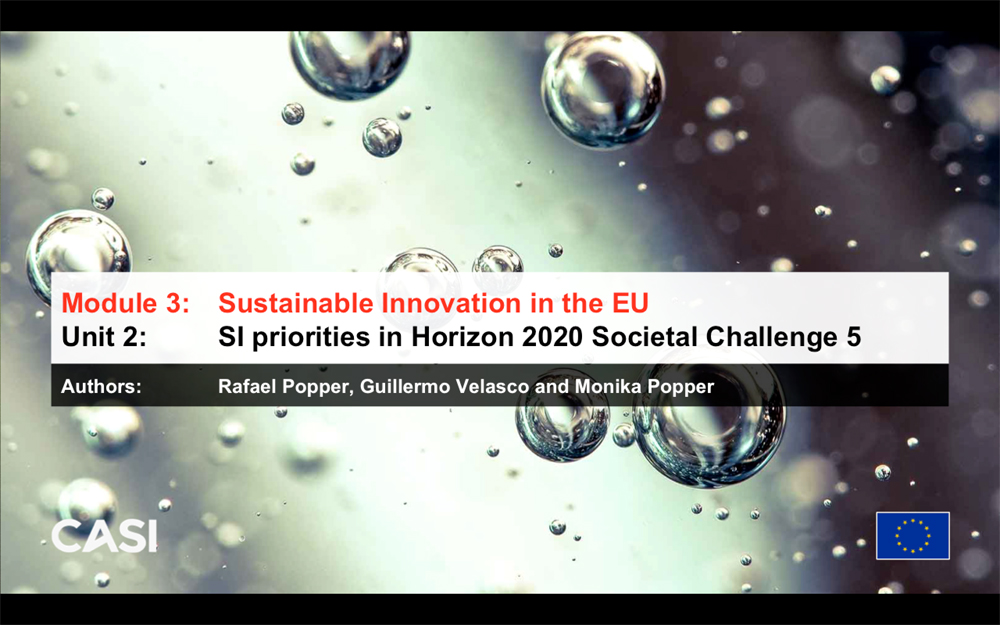
SI priorities in H2020 SC5
A guide to the EC Societal Challenge on Climate action, Environment, Resource efficiency and Raw materials: Explore SI priorities and more.
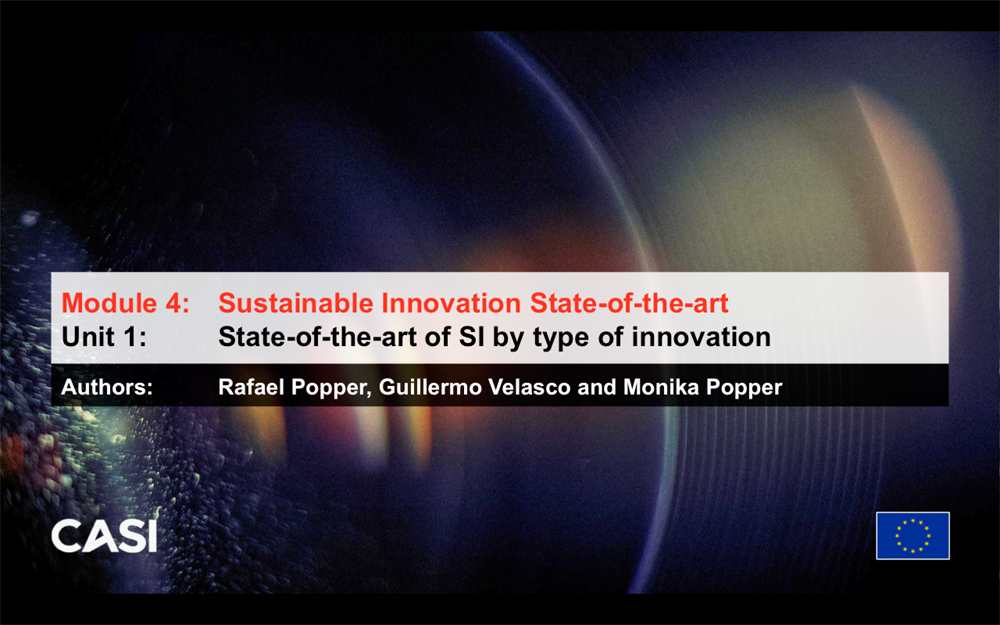
State-of-the-art of SI by type of innovation
Key results from the assessment of 500+ SI by type: Zoom into their objectives, priorities, multi-systemic impacts and sectoral relevance.
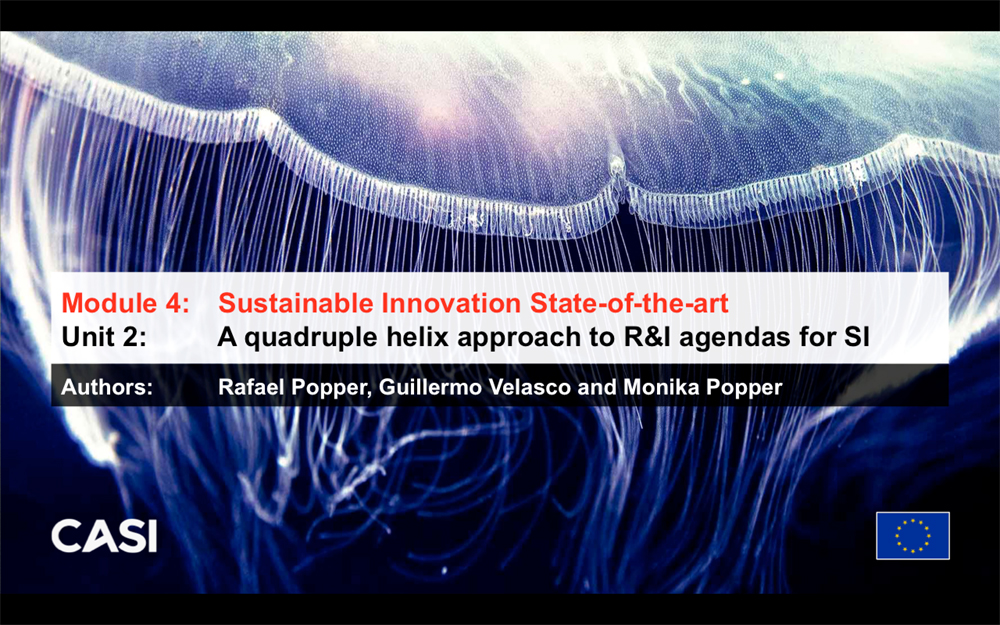
A quadruple helix approach to R&I agendas for SI
Top 10 research and innovation agendas for sustainability: Recognise the importance of the quadruple helix of SI actors in agenda-setting.
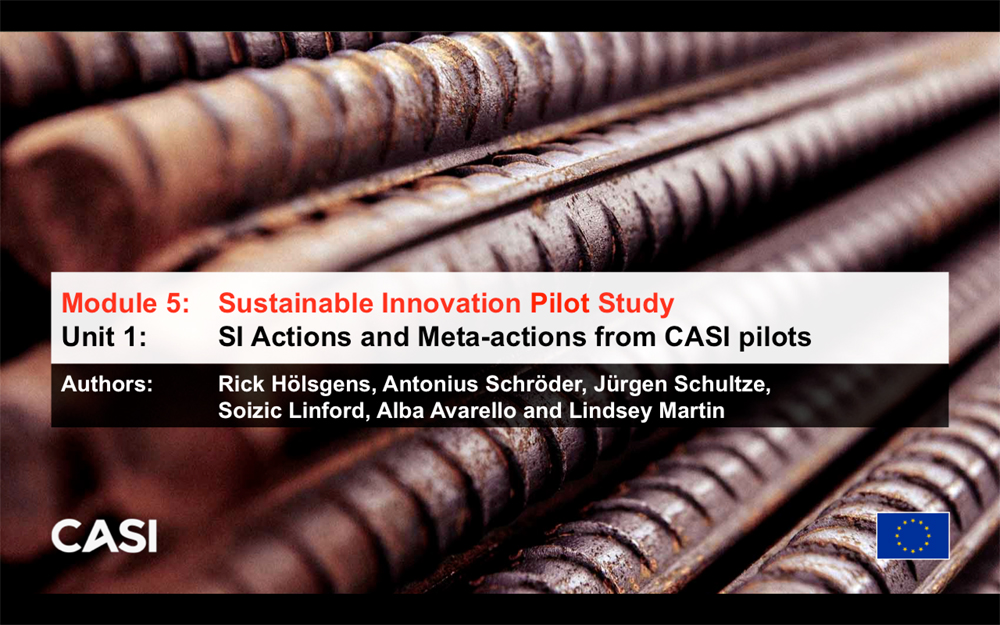
SI actions and meta-actions from the CASI pilots
A set of 55 lessons resulting from the 1st phase of CASI-F applied to 43 pilots: Learn from innovators’ most common managerial choices.
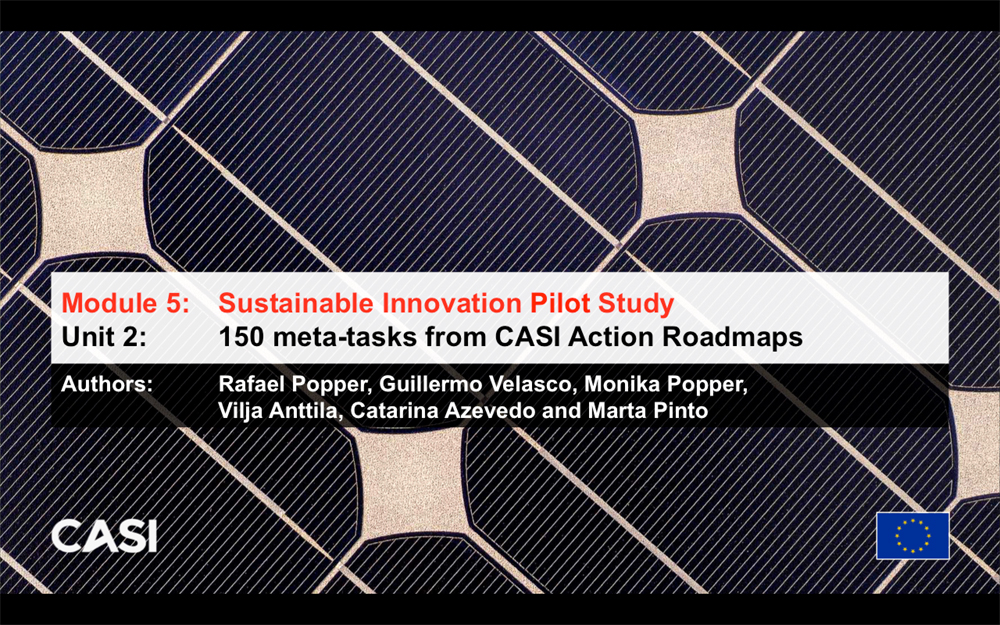
150 meta-tasks from CASI Action Roadmaps
150 systematically generated lessons from the 2nd phase of CASI-F: Improve key context, people, process and impact aspects of innovation.
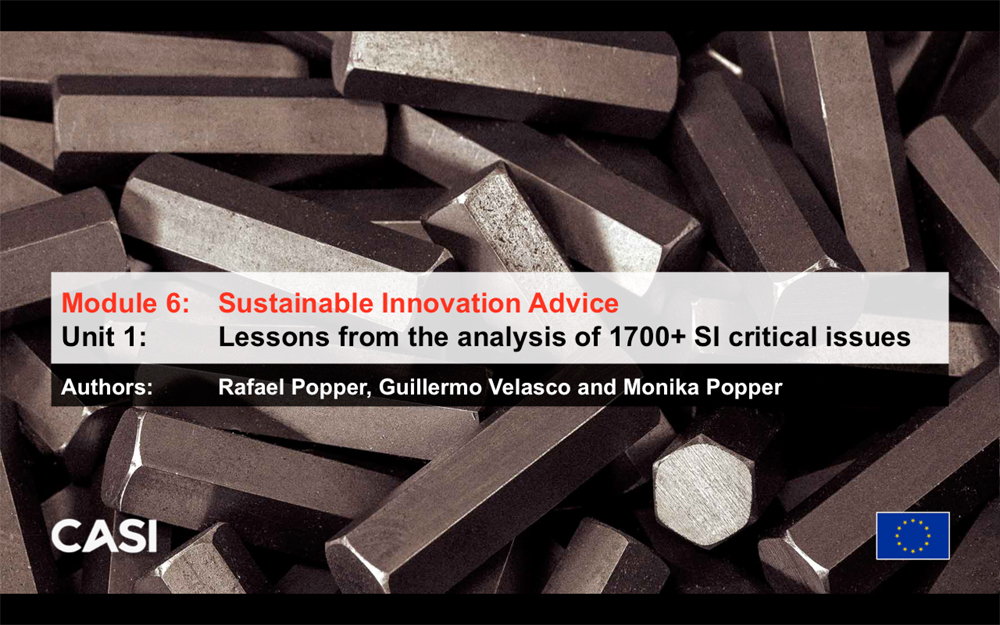
Lessons from the analysis of 1700+ SI critical issues
60 Tweet-like recommendations from technological, economic, social, environmental, political, ethical and spatial perspectives. Get inspired!
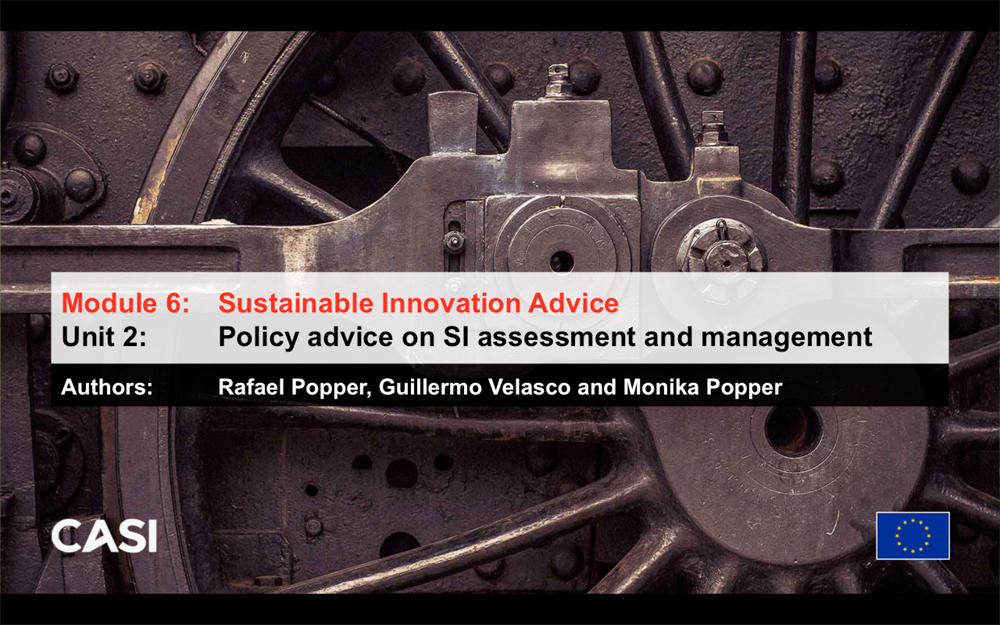
Policy messages on SI assessment and management
18 policy messages to better manage and assess sustainable innovation: Benefit from joint lessons and views on the way forward for CASI-F.
CERTIFICATION
To qualify for a Certificate on 'Sustainable Innovation Assessment and Management' , signed by the Course Director from The University of Manchester, you should study and complete all modules (each lasting a maximum of 90 minutes) and score at least 60% in the self-assessment activities provided under each unit. Detailed information about your progress and score will be available under 'My course' tab of your user profile where you will also be able to retake each module (no more than once), if needed.

Certificate for satisfactorily completed course
By completing the full course with a 60-79% score in the self-assessment tasks you will receive a certificate of satisfactory completion.
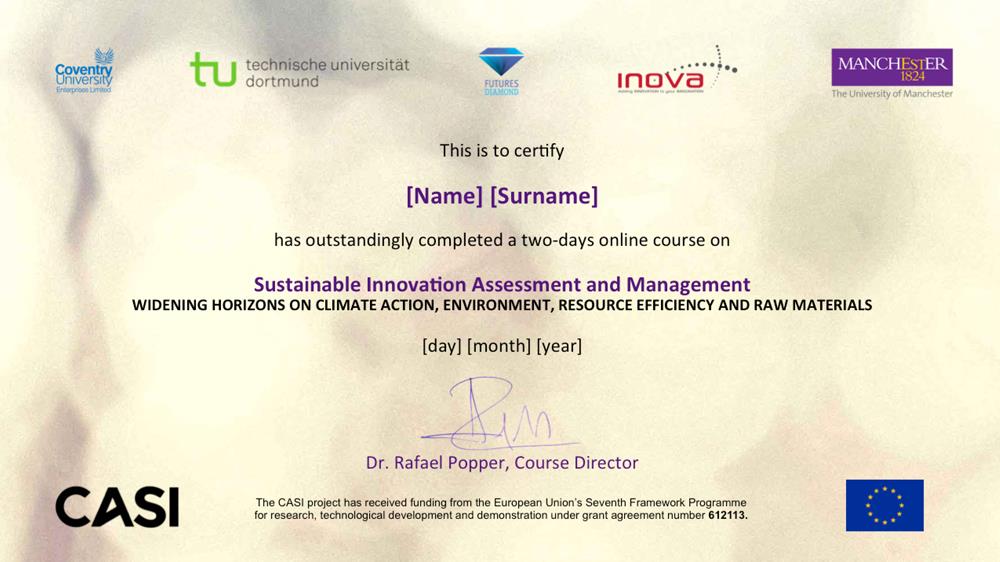
Certificate for outstandingly completed course
By completing the full course with a score of 80% or above in the self-assessment tasks you will receive a certificate of outstanding completion.
LEARNING OUTCOMES
While the CASI Sustainable Innovation Course offers answers and insights related to four key dimensions of sustainable innovation management (i.e. Context, People, Process, and Impact), one of the primary objectives of the training course is to focus on the ‘People’ dimension, and, in particular, on its two key aspects of ‘aptitude’ and ‘attitude’, which are necessary to promote and more effectively manage sustainable innovations. With this in mind, upon completion of this course, you will understand what sort of prerequisites, knowledge and leadership, among other skills, are needed to improve the sustainability of different types of innovations.
COURSE DIRECTOR
Dr. Rafael Popper - For further information, please contact: Rafael.Popper@manchester.ac.uk
COURSE SCIENTIFIC COORDINATION
Rafael Popper, Monika Popper and Guillermo Velasco
COURSE TECHNICAL IMPLEMENTATION
Futures Diamond
COURSE CONTENTS AUTHORS
(CZ) Futures Diamond(DE) Technical University of Dortmund
(PT) Inova+
(UK) Coventry University Entreprise
(UK) The University of Manchester
Note: The online course self-assessment exercises were built and designed for desktop and laptop only. However, the course contents can also be accessed from mobile devices.


